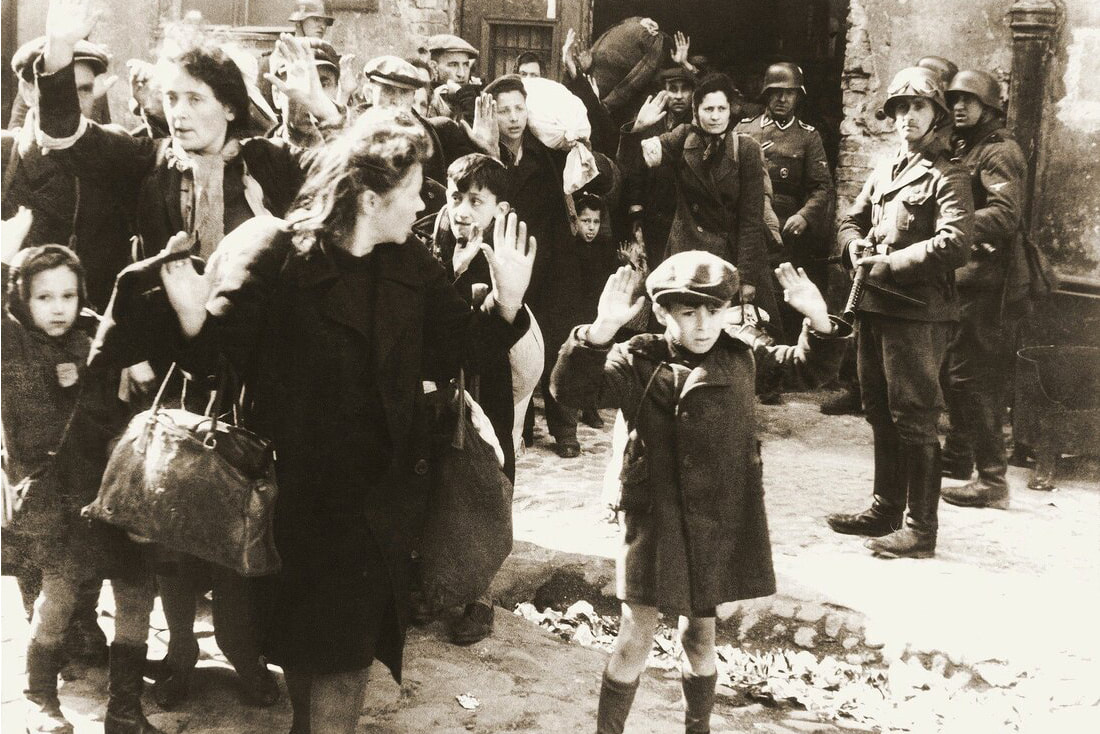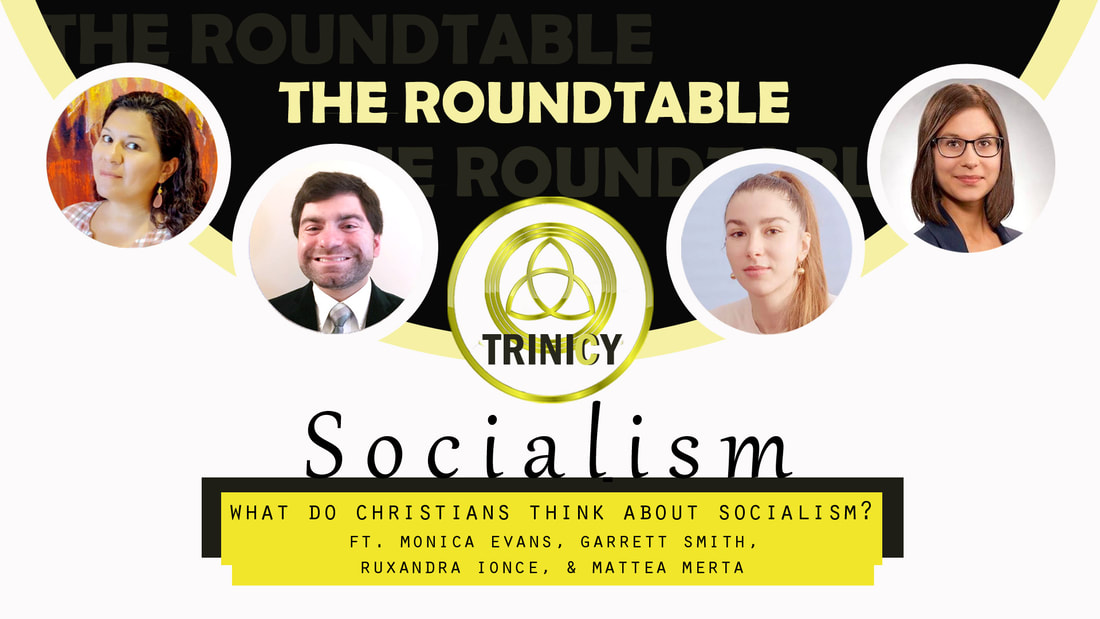|
Image by wal_172619 In February 1848, a book that would change the course of history was released. This book - The Communist Manifesto - was co-authored by two philosophers whose vision would negatively impact the world for more than a century and a half. The most prominent of its writers, Karl Marx, has been renowned by large populations of people ever since. Although there are various reasons for this, one might attribute it primarily to the fact that Marx sought to abolish classes in an effort to make everyone “equal.” Since the introduction of his Communist doctrine, various nations have expanded on his view. In a few instances, certain nations created their own branch of socialism, while taking a page from Marx’s Communism. The most notorious of these - Nazi Germany - embraced a leader and system that put eugenics at the forefront of their societal structure, along with nationalism. Due to those two factors, many figureheads and historians have placed Communism and Fascism on polar opposite ends of the political spectrum. In actuality, how accurate is this assumption? As I will present, Karl Marx and Adolf Hitler - though different in many ways - were actually kindred spirits. Three factors will prove that Marx’s socialism and Hitler’s socialism link the two ideologues together. PROGRESSIVE REVOLUTIONS The Russian Civil War ended in 1922. Its conclusion brought about the fall of the Russian Empire and the establishment of the first Communist nation on the world stage: the Soviet Union. The Red leader, Vladimir Lenin, was a violent revolutionary and disciple of Marx. During the same year, in Rome, revolutionaries attempting to install a new form of socialism - Fascism - took control. Under the command of Benito Mussolini, the world’s first Fascist regime was formed in Italy. One year later, another coup was attempted, this time in Berlin, Germany. Lead by Adolf Hitler, a young veteran of World War I, the relatively new Nazi Party (NSDAP) took to the streets. While the revolutions in Moscow and Rome proved successful, the same was not so for Hitler’s Nazis. The Beer Hall Putsch, as it was called, resulted in failure for Hitler, causing him to flee to the countryside, where he was captured and imprisoned not long after. Ten years passed, and in 1933, Hitler assumed power via election. From there, he transformed the Weimar Republic into Nazi Germany and established a one-party dictatorship. While the Communists in Russia achieved their goal through violence, the Nazis eventually came to power through a democratic process. Even still, the Nazis attempted a coup, though it did in fact fail. One might argue that Hitler’s means of achieving power were more “clever” than Marx or Lenin. It cannot be denied, however, that there were indeed interesting similarities between the Soviets and the Nazis when it came to their attempts at gaining control during the 1920s. SOCIALISM The Soviet Union was established as the world’s first Communist state. With this, they believed they were beginning the fulfillment of Marx’s prophecy. That is, that the world’s working class would rise up, overthrow the proletariat, and establish a global community with socialism as the backbone. Since the formation of the U.S.S.R., other Communist nations abroad - including China, North Korea, and Cuba - have seized the means of production and established a one-party state with a totalitarian ruler. This is coherent to traditional Marxist doctrine. Nazis, on the other hand, held a different belief pertaining to assuming control over the working people. Unlike Communists, Nazis did not seize the means of production overnight, nor did they abolish big business or the middle class. Hitler also considered Communists and Democratic Socialists to be enemies of his ideology. For these reasons, many have tried to assert that Nazis, despite being National Socialists, were not actually socialists. There are several ways to counter this assertion, however. First, it should be noted that the “Big Three” Fascists - Hitler, Mussolini, and the founder of Fascism, Giovanni Gentile - were followers of Marx before converting to Fascism. It was Hitler himself who stated the following:
It is important to note that Hitler and the Nazis did not hate Communists because they were socialists. Hitler hated them because, according to Communists themselves, “working men know no country.” Hitler placed Germany above all, and as such, hated the idea that the working class could not be loyal to a particular nation. Because of this, Hitler considered Communists to be traitors to Germany. Interestingly enough, both Communists and Nazis hated Social Democrats, and the two factions sometimes voted together against Social Democrats in German Parliament. As for the Nazis and control of the workers, it is true that they did not believe in overnight seizure of the means of production. Rather, as Senator Rand Paul states in The Case Against Socialism, Ludwig von Mises noticed that Nazism “seemingly and nominally maintains private ownership of the means of production, entrepreneurship, and market exchange.” John Reisman, building on Mises’s finding, points out that Mises “identified...that private ownership of the means of production existed in name only under the Nazis and that the actual substance of ownership of the means of production resided in the German government” (Paul, 150). To Hitler, there were better ways of taking over than initiating class wars and disrupting national unity. At The Mises Institute, Ralph Reiland discusses an essay by Mises. In this piece, Mises uses an example from a book written by a business owner in Germany, 1939. The author, Gunter Reimann, comments:
If there is any further doubt that the Nazis were socialists, listen to the words of Gregor Strasser:
Numerous phrases of socialist propaganda can be found throughout the Nazi Party Platform, but perhaps the most significant is the line that states, “Common good comes before individual good.” As Rand Paul remarks, “If you read the Nazis themselves, they never doubted their socialism and were proud of its distinct brand” (Paul, 142). COMMUNIST HATRED OF CHRISTIANITY Communist regimes always produce a totalitarian leader that places the state over the life of an individual. Over the past century, Communism has killed millions upon millions of people. With the establishment of a dictator, religion is condemned and many who are found worshipping are often placed in concentration camps or killed. In these regimes, Christians have often been at the forefront of persecution. “Separation of Church and State” is occasionally, although incorrectly, attributed to the U.S. Constitution. Rather, it was found in the Soviet Union’s Constitution. Under the leadership of Vladimir Lenin, over 1,200 Orthodox priests were killed, while many other Christians were also killed, imprisoned, or exiled. Marx believed religion would eventually disappear, and it could be said that the Soviets viewed themselves as fulfillers of that prophecy. Aside from Lenin’s anti-Christian campaigns, Joseph Stalin’s regime saw the implementation of the “League of the Militant Godless.” During the Great Purge, over 100,000 members of the Russian Orthodox Church were killed by the LMG. During the Cold War, Nikita Khrushchev continued the persecution against Christians. Another Communist giant, China, also conducted war against Christianity. As Joe Carter of The Gospel Coalition remarks, the Communist regime of Mao Zedong waged war on Christianity, beginning primarily with the start of the Cultural Revolution in 1966. Eleanor Albert of the Council of Foreign Relations states, “Places of worship were demolished, closed, or reappropriated and religious practices were banned.” Today, Communism in China is much “softer” than it was under Mao, but it still exists, and religious persecution is still prevalent. As Carter points out:
Carter continues to state that the government pays for church buildings, so long as they are registered with the TSPM. Many churches refuse to join, and resort to meeting underground. NAZIS & CHRISTIANITY How did Nazis hold up on this issue? For starters, the Nazi Party Platform states that they conformed to a belief known as “Positive Christianity,” while not belonging to any particular faith. Positive Christianity eliminated all Jewish heritage from the Bible and rewrote God’s word to fit the Nazis’ belief system. While Positive Christianity was the religious tenet held by the party itself, many Nazi leaders were, unsurprisingly, atheists. Much like with big business, Hitler did not outright eliminate the church. This is because Hitler understood that, just as with businesses, destroying the church in a quick fashion would result in a divided, and therefore broken, Germany. He did, however, place many of them under Gestapo surveillance, and Christians were often persecuted. Martin Bormann, a personal aid to Hitler who remained loyal to the end, compiled a series of Hitler’s private conversations. Known as “Hitler’s Table Talk,” one of the most prominent themes throughout is Hitler’s hatred of Christianity. On October 10, 1941, Hitler commented, “Christianity is a rebellion against natural law, a protest against nature. Taken to its logical extreme, Christianity would mean the systematic cultivation of human failure” (Bormann, 20). Some historians have correctly pointed out that Hitler occasionally stood side-by-side with priests during photo ops, especially during the early years of Nazi Germany. If these priests had known Hitler’s true intentions, however, they probably would have kept a far distance between themselves and the Fuhrer. Another example of Hitler’s thoughts on Christianity come from a speech he made on October 14, 1941. With Heinrich Himmler as his guest, Hitler stated:
Children in Nazi Germany were targeted with anti-Christian indoctrination as well. For example, Jonah Goldberg in “Liberal Fascism” points out how members of the Hitler Youth were taught these new lyrics to Silent Night: Silent Night! Holy night! All is calm, all is bright, Only the Chancellor steadfast in fight, Watches o’er Germany by day and night, Always caring for us. Goldberg also states that Hitler said this once to bishops who rejected the secular aims of the state: “You are traitors to the Volk (German working class). Enemies of the Vaterland and destroyers of Germany.” Furthermore, Goldberg remarks that the Nazis abolished mandatory prayer in schools in 1935, and in 1938, Nativity plays were banned (Goldberg, 365). THEY’RE NOT THAT DIFFERENT By now, it should be abundantly clear that Communists and Nazis, though different in various ways, are similar in many others. Both groups have pursued an agenda of ultimate government control; both hold little to no regard for human life; and both have professed a profound hatred of Christ and His principles. While Nazism no longer poses a global threat, Communism is still rampant across the world. The Soviet Union is no more, but Communists continue to hold a global platform. It is up to Christians everywhere to take a stand against the socialist agenda. Only through Christ can people find true and lasting satisfaction and fulfillment.
3 Comments
Click the image above to watch the FULL Roundtable One of the trending words today, especially on America's campuses, is "socialism." As Christians, what do we know about socialism and how should we approach its claims moving forward, especially in an election year? Welcome to the TRINICY Roundtable, one of our initiatives to cultivate conversation among conservative Christians on and off campus on relevant topics of the day. The vide above contains the FULL Roundtable discussion on these questions. The videos below will offer shorter segments of the talk if you would much rather head straight towards certain topics. Please consider subscribing to our YouTube channel to receive regular updates on our most recent work video-wise! Your support means a lot to us! Roundtable ParticipantsModerator: Mattea Merta (Canada) Panelists: Monica Evans (Arizona, U.S.A.), Garrett Smith (North Carolina, U.S.A.), & Ruxandra Ionce (Denmark) #1: What is socialism?!?!We start our first segment with defining the word "Socialism." What is it? Let's hear from our panelists! Did we miss anything? Please share in the comments - here or on YouTube! #2: What are our top concerns?What are our top concerns as citizens and as Christians when it comes to socialism? Listen in! Do you have concerns that are not represented by the views of the panel? Please share them with us in the comments! #3: Why is socialism so appealing to the youth?Why is Socialism SO Appealing to Youth? This is a serious question! Our panelists provide serious answers. Listen in. #4: Favorite products from capitalism?What are some of YOUR favorite products produced by capitalism? Share them in the comments below! #5: Is "christian socialism" a thing?Is Christian Socialism a THING? Where did this notion even come from? What Scriptures from the Bible purportedly support this? #6: How does socialism affect the family?What is the reality and fate of the family unit under socialism? Why is even the family a threat to socialism? #7: Where did we go wrong & how can we fix it?Where have we gone wrong as a Church? What hope is there moving forward? Our panelists don't linger on the negatives. They provide a biblical worldview to help our audience keep marching on as soldiers for Christ! We hope you enjoyed watching or listening in to this discussion between some of our most outspoken conservative Christian members and leaders in TRINICY. If you are a conservative Christian and would love to join this movement, please reach out to us at [email protected]. We are looking for you and we would love to finally connect! If you enjoyed this discussion, please share the content with your friends and family, especially those who are currently on secular or secularized campuses. Questions or comments?What did you think of the Roundtable overall? Which segments did you find the most interesting or challenging? Why? Please share in the comments here or directly on the YouTube videos!
|
Archives
May 2024
DisclaimerThe views, information, and opinions expressed in this website are solely those of the individual contributors and do not necessarily represent those of TRINICY International. Categories
All
|
Content |
Programs |
© COPYRIGHT 2018-2023
ALL RIGHTS RESERVED. |



